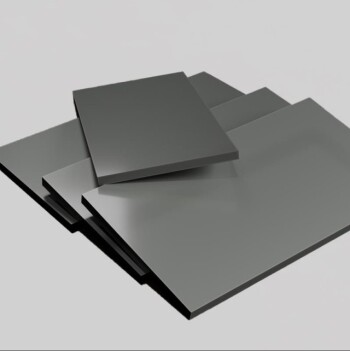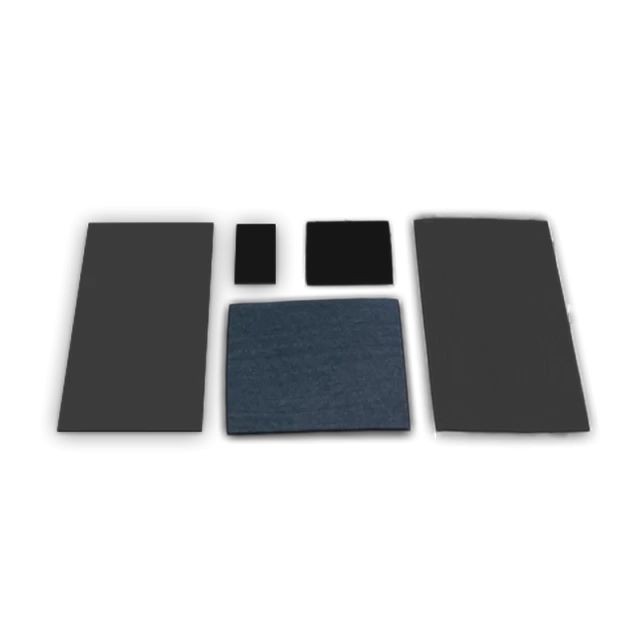
Electrochemical Consumables
Conductive Carbon Cloth Carbon Paper Carbon Felt for Electrodes and Batteries
Item Number : ELCPF
Price varies based on specs and customizations
$19.90 / set
Shipping:
Contact us to get shipping details Enjoy On-time Dispatch Guarantee.
Why Choose Us
Easy ordering process, quality products, and dedicated support for your business success.
Conductive carbon cloth / conductive carbon paper / conductive carbon felt for electrochemical experiments.
Technical specifications
Conductive carbon paper
Commonly used in current collectors and composite materials, it is an excellent choice for making electrochemical test substrates

| Model | HCP330N (hydrophilic) | HCP330P (waterproof, that is, PTFE treatment) | HCP331N (hydrophilic) | HCP331P (waterproof, that is, PTFE treatment) |
| Thickness | 0.29±0.02mm | 0.380.02mm | 0.340.02mm | 0.350.02mm |
| Size | 36*18cm | 36*18cm | 336*18cm | 36*18cm |
| Unit weight | 160-190 g/m² | 175-205g/m² | 200-230g/m² | 200-230g/m² |
| Longitudinal resistance | < 0.12 × 10-²Ω | < 0.35 × 10-²Ω | < 0.11 × 10-²Ω | < 0.2 × 10-²Ω |
Conductive carbon cloth
Commonly used in current collectors, capacitor substrates, MFC reactors, microbial fuel cells

| Model | WIS1010 | WIS1011 |
| Thickness | 0.38mm | 0.41mm |
| Basic Weight | 180g/m² | 200g/m² |
| Air Permeahility | < 55sec | < 55sec |
| Through.Plane Resistance | < 13 mΩcm² | < 13 mΩcm² |
| Tensile Strength (MD) | 10 N/cm | 10 N/cm |
| Tensile Strength (XD) | 5 N/cm | 5 N/cm |
Conductive carbon felt
Commonly used in current collectors, capacitor substrates, MFC reactors, microbial fuel cells

| Density | 70-600 g/m² |
| Thickness size | 1 ~ 12 mm |
| Carbon content | ≥90% |
| Specific surface area | ≥1500m²/g |
Detail & Parts
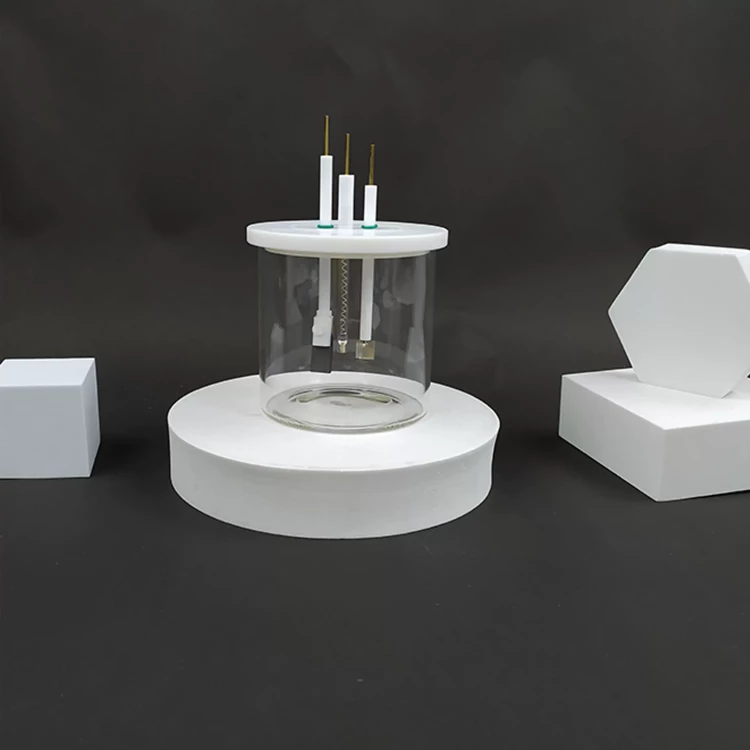
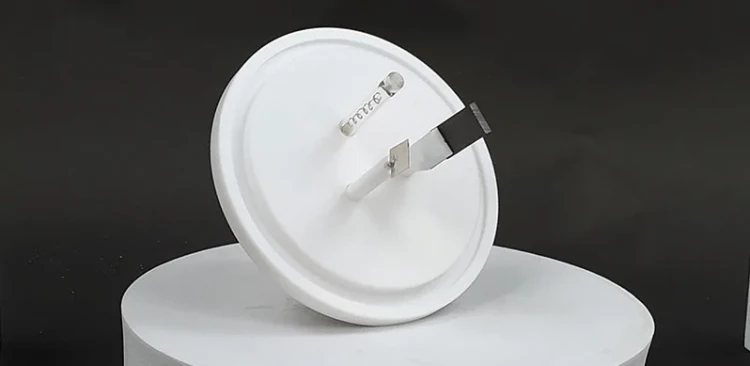
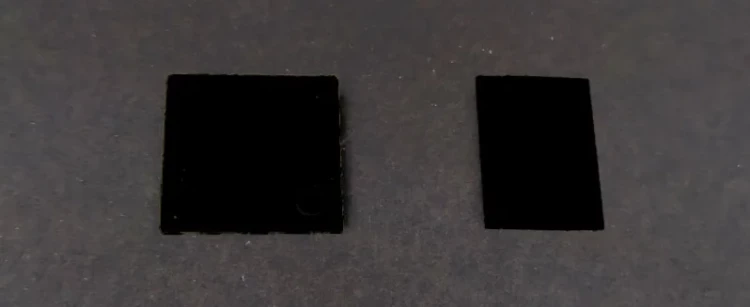
Operating steps
Designed for You
KinTek provide deep custom made service and equipment to worldwide customers, our specialized teamwork and rich experienced engineers are capable to undertake the custom tailoring hardware and software equipment requirements, and help our customer to build up the exclusive and personalized equipment and solution!
Would you please drop your ideas to us, our engineers are ready for you now!
Trusted by Industry Leaders

FAQ
What Considerations Should Be Made For Battery Case Gaskets?
What Is An Electrode In Electrochemistry?
What Is The Role Of Battery Case Gaskets?
What Are The 3 Electrodes In Electrochemistry?
What Are Lithium-air Battery Cases?
What Are The Different Types Of Electrochemical Electrodes?
How Should Button Battery Cases Be Chosen For Specific Applications?
What Materials Are Commonly Used For Electrochemical Electrodes?
What Factors Should Be Considered When Selecting An Electrochemical Electrode?
How Can Electrochemical Electrodes Be Used In Various Applications?
4.8 / 5
KINTEK SOLUTION's conductive carbon cloth is top-notch! The quality is exceptional, and it arrived promptly. I highly recommend it.
4.7 / 5
I was impressed with the durability of KINTEK SOLUTION's conductive carbon paper. It has held up well in my experiments, and I'm very satisfied with its performance.
4.9 / 5
The conductive carbon felt from KINTEK SOLUTION is a game-changer for my research. It's lightweight, highly conductive, and incredibly versatile. Highly recommended!
4.6 / 5
KINTEK SOLUTION's conductive carbon materials are a great value for the price. They're affordable, high-quality, and have exceeded my expectations. I'll definitely be purchasing from them again.
4.8 / 5
I'm truly impressed with the technological advancements showcased in KINTEK SOLUTION's conductive carbon products. They're pushing the boundaries of innovation and delivering cutting-edge solutions. Keep up the great work!
4.7 / 5
The fast delivery of KINTEK SOLUTION's conductive carbon materials was a lifesaver. I received my order within days, which allowed me to continue my research without any delays. Thank you for the exceptional service!
4.9 / 5
I've been using KINTEK SOLUTION's conductive carbon products for years, and I can confidently say that they're the best in the market. The quality is unmatched, and they always meet my expectations.
4.8 / 5
KINTEK SOLUTION's conductive carbon materials have revolutionized my research. They're durable, reliable, and have enabled me to achieve groundbreaking results. Highly recommended!
4.6 / 5
The customer service at KINTEK SOLUTION is outstanding. They're always willing to go the extra mile to ensure that I'm satisfied with my purchase. I highly appreciate their dedication to customer satisfaction.
REQUEST A QUOTE
Our professional team will reply to you within one business day. Please feel free to contact us!
Related Products
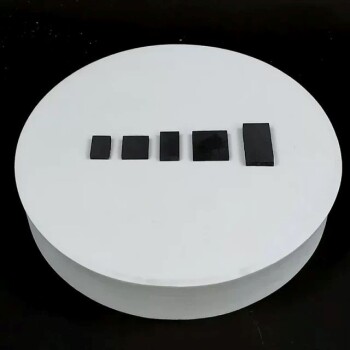
Glassy Carbon Sheet RVC for Electrochemical Experiments
Discover our Glassy Carbon Sheet - RVC. Perfect for your experiments, this high-quality material will elevate your research to the next level.
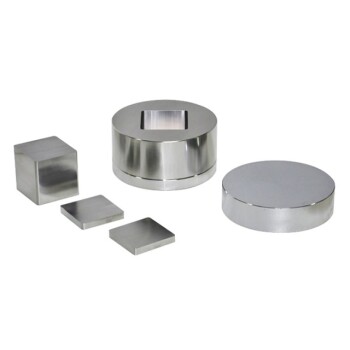
Square Lab Press Mold for Laboratory Applications
Create uniform samples easily with Square Lab Press Mold - available in various sizes. Ideal for battery, cement, ceramics, and more. Custom sizes available.
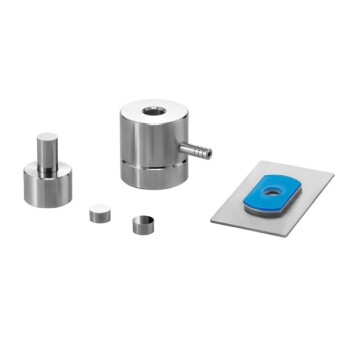
Lab Infrared Press Mold
Easily release samples from our lab infrared press mold for accurate testing. Ideal for battery, cement, ceramics, and other sample preparation research. Customizable sizes available.
Related Articles

The Importance of Activated Carbon Regeneration in Water Treatment
In water treatment, activated carbon is often used as a means of removing unwanted contaminants, such as chlorine, chloramines, and organic matter, from drinking water and wastewater.

How to Maintain Manual Lab Hot Press Machine
Maintenance of manual hot press: Keep flat and clean, Clean the upper and lower linings, Pad the fiberboard

Understanding Electrodes in Electrochemical Systems: Working, Counter, and Reference Electrodes
An overview of the roles and characteristics of working, counter, and reference electrodes in electrochemical systems.

The Silent Geometry of Voltage: Respecting the Limits of Electrolysis
Electrolysis relies on strict electrical boundaries. Learn why exceeding rated current and voltage isn't just inefficient—it's destructive.

PTFE's high temperature and corrosion resistance: Why it is indispensable in industry
The unique advantages of polytetrafluoroethylene (PTFE) in high temperature and corrosion resistance analyze why it has become an indispensable material in industry, especially in applications in harsh environments.

Polytetrafluoroethylene (PTFE): How low friction coefficient promotes industrial progress
Explore the unique advantages of polytetrafluoroethylene (PTFE)'s low coefficient of friction and analyze how it promotes progress and innovation in industrial technology in terms of reducing wear and improving equipment efficiency.

Carbon Coating for Surface Modification of Silicon-Based Materials in Lithium-Ion Batteries
This article discusses the application of carbon coatings to improve the performance of silicon-based anode materials in lithium-ion batteries.

The Art of the Shutdown: Engineering Reliability in Electrochemical Cells
Post-experiment procedures are not chores; they are the foundation of future accuracy. Learn the disciplined protocol for maintaining double-layer electrolytic cells.

Considerations for Evaporative Coating on Flexible Substrates
Key factors in successful evaporative coating on flexible materials, ensuring quality and performance.

In-depth analysis of the key characteristics and advantages of polytetrafluoroethylene
This paper will take an in-depth look at the key properties of polytetrafluoroethylene (PTFE), such as high-temperature resistance, corrosion resistance and low friction, as well as the wide range of applications and advantages in industry and everyday life.

The Architecture of Silence: Why Material Choice Defines Electrochemical Truth
Explore how High Borosilicate Glass, PTFE, and POM create the perfect chemically inert environment for accurate electrochemical testing.
